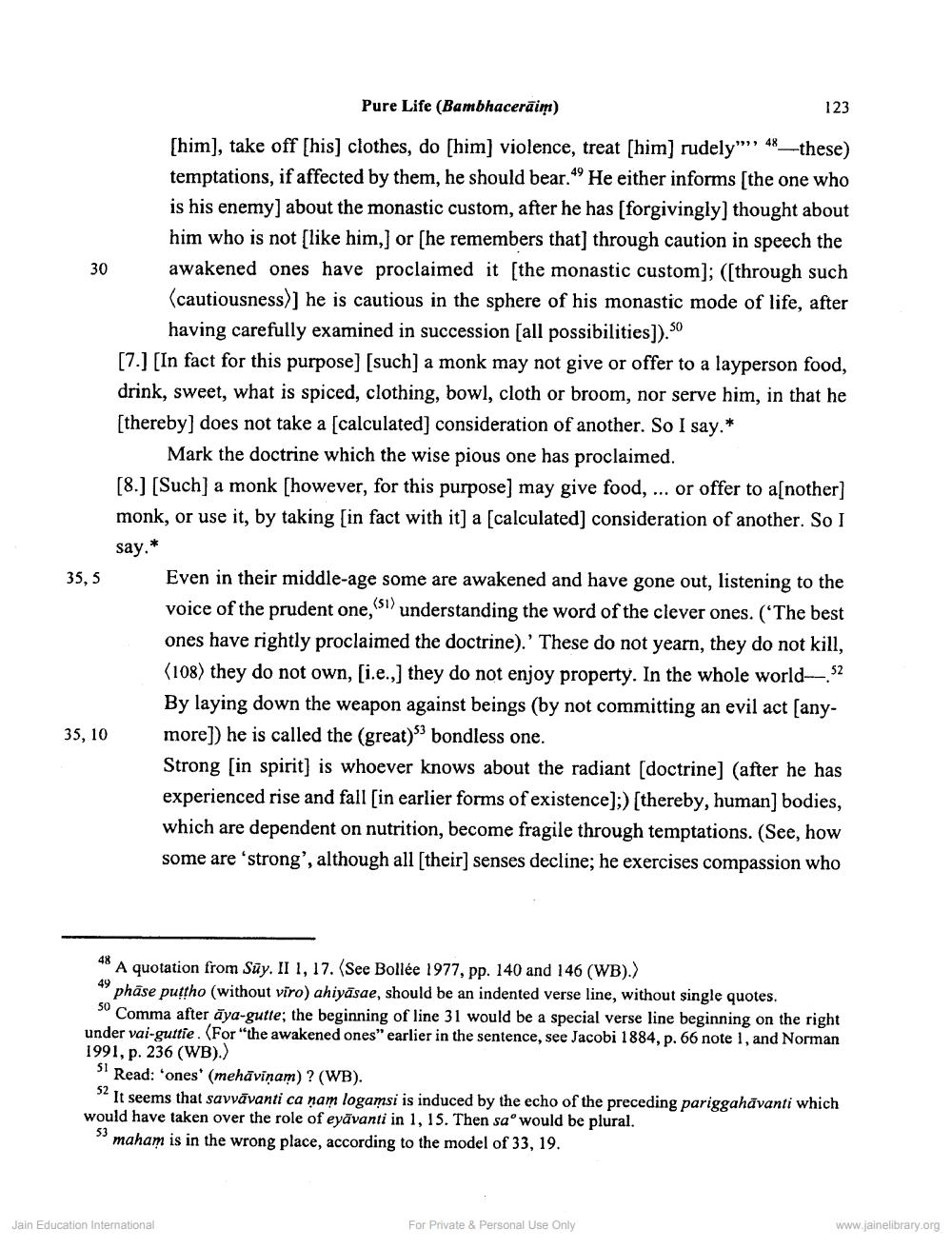________________
Pure Life (Bambhacerāim)
123
30
[him), take off [his) clothes, do [him) violence, treat [him) rudely""'48—these) temptations, if affected by them, he should bear.“ He either informs (the one who is his enemy, about the monastic custom, after he has (forgivingly, thought about him who is not like him,) or (he remembers that] through caution in speech the awakened ones have proclaimed it [the monastic custom]; ([through such (cautiousness)] he is cautious in the sphere of his monastic mode of life, after
having carefully examined in succession [all possibilities]).50 [7.] [In fact for this purpose) (such) a monk may not give or offer to a layperson food, drink, sweet, what is spiced, clothing, bowl, cloth or broom, nor serve him, in that he [thereby) does not take a (calculated] consideration of another. So I say.*
Mark the doctrine which the wise pious one has proclaimed. (8.) (Such) a monk (however, for this purpose) may give food, ... or offer to a[nother] monk, or use it, by taking in fact with it] a [calculated) consideration of another. So I
say.* 35,5 Even in their middle-age some are awakened and have gone out, listening to the
voice of the prudent one, understanding the word of the clever ones. (“The best ones have rightly proclaimed the doctrine).' These do not yearn, they do not kill, (108) they do not own, [i.e.,) they do not enjoy property. In the whole world-52
By laying down the weapon against beings (by not committing an evil act (any35, 10 more]) he is called the (great) bondless one.
Strong (in spirit] is whoever knows about the radiant (doctrine] (after he has experienced rise and fall [in earlier forms of existence];) (thereby, human] bodies, which are dependent on nutrition, become fragile through temptations. (See, how some are 'strong', although all (their) senses decline; he exercises compassion who
48 A quotation from Sùy. II 1, 17. (See Bollée 1977, pp. 140 and 146 (WB).)
phāse puttho (without viro) ahiyāsae, should be an indented verse line, without single quotes. 50 Comma after āya-gutte; the beginning of line 31 would be a special verse line beginning on the right under vai-guttie. (For the awakened ones" earlier in the sentence, see Jacobi 1884, p. 66 note 1, and Norman 1991, p. 236 (WB).)
Read: 'ones' (mehāvinam)? (WB). » It seems that savvāvanti ca nam logamsi is induced by the echo of the preceding pariggahāvanti which would have taken over the role of eyāvanti in 1, 15. Then sa would be plural.
maham is in the wrong place, according to the model of 33, 19.
Jain Education International
For Private & Personal Use Only
www.jainelibrary.org




